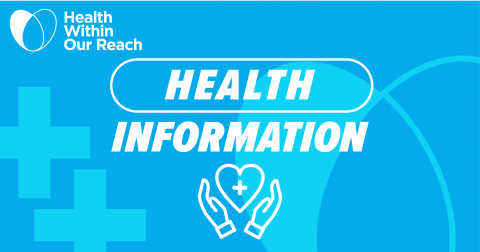Marzo 9, 2022
Should I still wear a mask? Get to know the new rules in the United States

As more people are vaccinated against COVID-19 and the case rate is declining, some states and counties in the United States are changing their mandates for the use of facemasks indoors.
Although more and more places are no longer mandating the use of facemasks, there are still some situations in which we should use them.
On February 25th, the Centers for Disease Control and Prevention (CDC), the U.S. public health agency, updated its infection rates and relaxed the use of facemasks in counties where community levels of COVID-19 infection are low and medium.
So, should you wear a mask?
If you have a weakened immune system or live with someone who does, it is important that you continue to wear masks and keep physical distance from people you do not share a household with.
Facemasks are also critical if you have not been vaccinated or if you spend time with people who have symptoms of the disease, have had a positive test, or were exposed to a person with COVID-19. According to the CDC, if you have been in close quarters with a person with COVID-19, you should wear a well-fitting facemask for a full 10 days when you are around others indoors.
In addition, if you live in a county where there have been a number of positive cases of COVID-19 (high infection rates), it is recommended that you wear a facemask. Here are the prevention measures to consider each week, based on the level of COVID-19 infection in your county.
If you are a person in good health, and you have received the full initial and booster doses of the COVID-19 vaccine, you can choose whether to wear a facemask indoors, according to the CDC update. Consider the risks involved and make the best decision.
Should I wear a facemask on public transportation or airplanes?
Yes, public transportation such as buses, airplanes, and subways are exempt from local mandates, so everyone should wear a facemask on public transportation and inside stations, at bus stops or in airports. Here you can check the federal mandate that applies to public transportation and stations/airports.
And what about supermarkets, restaurants, or workplaces?
We suggest you follow the rules and regulations of the place you are entering. If the sign on the door says "Masks required," you should wear them. If the business says that mask use is optional,, you should take into account the space, the number of people and the ventilation.
You have the right to continue wearing masks in your workplace, if you choose to do so. It is still important to wear masks in some indoor workplaces with large numbers of people and poor ventilation, such as poultry plants. If your employer does not allow you to wear masks or retaliates against you for wearing them, contact us!
Remember that wearing masks, being up-to-date on your COVID-19 vaccinations, practicing physical distancing, avoiding crowds and poorly ventilated spaces, washing your hands, and getting tested if you develop symptoms are still effective measures to prevent the spread of COVID-19.
If you would like to get vaccinated against COVID-19 or receive a booster dose, you can find a site near you at Vaccines.gov. Also, you can receive 4 free test kits delivered to your home. Order them at: https://special.usps.com/testkits-es
Depending on the conditions at your workplace, your employer may be required to provide personal protective equipment, including N95 or equivalent face coverings, free of charge. If you have questions about workplace safety, you can call the Centro de los Derechos del Migrante legal team from Mexico at (800) 590-1773 or from the United States at 1 (855) 234-9699. To speak to someone in Mixteco, call 953-554-0517 from Mexico. Our services are completely free and confidential.
